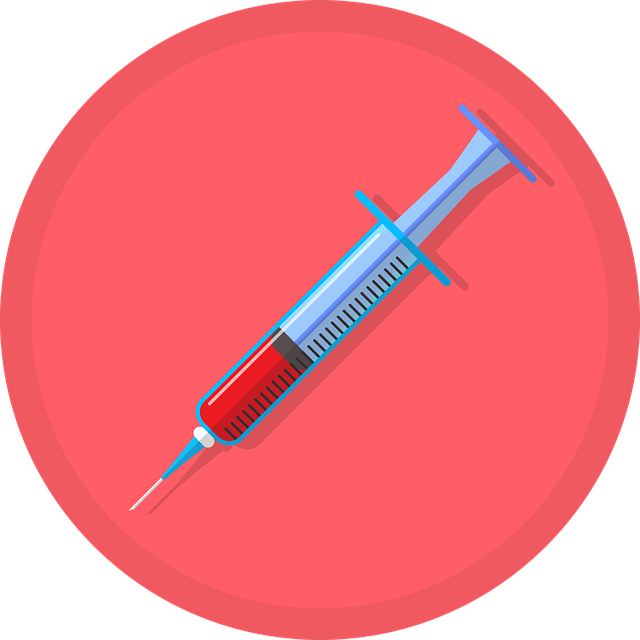Testosterone, a key hormone produced in the testicles, is vital for men's physical development, energy, and sexual health. Imbalances, detected through accurate testosterone blood tests, can cause significant issues like muscle loss, fatigue, and bone fragility. Early diagnosis enables effective treatment, including testosterone replacement therapy or lifestyle changes, to manage imbalances and maintain overall well-being. Modern testing methods provide improved accuracy, ensuring personalized healthcare approaches based on individual hormone levels and concerns.
Uncover the power of a reliable testosterone blood test—a pivotal tool in diagnosing hormone imbalances. Understanding testosterone, its vital role, and the signs of imbalance are essential steps towards optimal health. This article guides you through the process, from identifying symptoms to interpreting test results. Discover the difference between traditional and advanced testing methods, and explore effective treatment options and lifestyle changes to enhance your testosterone levels naturally.
- Understanding Testosterone: The Hormone and Its Role in the Body
- Why Diagnose Hormone Imbalances? Identifying Symptoms and Risks
- Traditional vs. Reliable Testosterone Blood Testing Methods
- Interpreting Test Results: What Do Levels Mean for Your Health?
- Enhancing Testosterone Levels: Treatment Options and Lifestyle Changes
Understanding Testosterone: The Hormone and Its Role in the Body
Testosterone is a hormone that plays a pivotal role in an individual’s overall health and well-being, especially in men. It is primarily produced in the testicles, with a small amount also synthesized in the adrenal glands and ovaries. This hormone is responsible for numerous physical developments and maintains various bodily functions throughout life. In terms of male characteristics, testosterone fosters muscle mass growth, bone density strength, and the development of secondary sexual traits like body hair and deeper voice tones during puberty.
Beyond these obvious effects, testosterone also plays a significant role in energy levels, red blood cell production, and maintaining a healthy libido. A reliable testosterone blood test is essential for diagnosing hormone imbalances, which can lead to various health issues if left untreated. These imbalances may cause symptoms like decreased muscle mass, fatigue, low sex drive, and bone fragility, emphasizing the need for accurate testing methods to monitor and manage hormone levels effectively.
Why Diagnose Hormone Imbalances? Identifying Symptoms and Risks
Diagnosing hormone imbalances is crucial for several reasons, particularly in ensuring optimal health and well-being. Hormones play a pivotal role in regulating various bodily functions, including metabolism, energy levels, mood, and sexual health. When there’s an imbalance, it can lead to a range of symptoms that may impact daily life significantly. For example, in men, low testosterone levels (hypogonadism) can result in decreased muscle mass, fatigue, reduced libido, and even bone density issues. Identifying these imbalances early through a reliable testosterone blood test is essential as it allows for prompt intervention and treatment, thereby mitigating potential long-term health risks.
Recognizing the symptoms of hormone imbalances is key to timely diagnosis. These can include persistent fatigue, changes in sexual function or desire, shifts in body composition (muscle loss or increased fat), irregular sleep patterns, and mood alterations. By addressing these issues, individuals can enhance their quality of life and reduce the risk of developing more severe health complications associated with hormone imbalances.
Traditional vs. Reliable Testosterone Blood Testing Methods
In the quest to diagnose hormone imbalances, particularly low or high testosterone levels, the reliability of a testosterone blood test is paramount. Traditional methods often involve a single point-in-time measurement, which can be influenced by various factors like stress and physical activity. This approach may not accurately reflect an individual’s hormonal state over time.
Reliable testosterone blood testing has evolved to incorporate more sophisticated techniques, such as measuring testosterone levels at multiple time points or using advanced laboratory methods for enhanced accuracy. These modern approaches consider the natural fluctuations in hormone levels throughout the day, offering a more holistic view of an individual’s endocrine health.
Interpreting Test Results: What Do Levels Mean for Your Health?
Interpreting your testosterone blood test results is a crucial step in understanding your hormone health. Different levels can indicate various conditions, from normal variation to underlying medical issues. Generally, total testosterone levels for men typically range between 270-1070 nanograms per deciliter (ng/dL). However, what truly matters is not just the number but also how it aligns with your individual health goals and symptoms.
For instance, a man experiencing fatigue, decreased muscle mass, or low libido might be concerned if his testosterone levels are lower than average. Conversely, elevated testosterone could point to conditions like polycystic ovary syndrome (PCOS) in women or certain types of tumors. Consulting with a healthcare professional is essential after receiving your results to contextualize the numbers and determine the best course of action based on your unique circumstances.
Enhancing Testosterone Levels: Treatment Options and Lifestyle Changes
If a testosterone blood test indicates low levels, several treatment options are available to help restore balance. One common approach involves medication, such as testosterone replacement therapy (TRT), which can be administered through injections, patches, or topical creams. This therapy directly increases testosterone in the bloodstream, alleviating symptoms of low T.
In addition to medical interventions, lifestyle changes play a significant role in enhancing testosterone levels naturally. Regular exercise, particularly high-intensity workouts and strength training, stimulates testosterone production. Maintaining a balanced diet rich in protein, healthy fats, and essential vitamins is also crucial. Adequate sleep is another key factor, as the body produces more testosterone during deep sleep stages. Avoiding excessive stress, smoking, and heavy alcohol consumption can further support optimal hormone levels, ensuring overall well-being.
A reliable testosterone blood test is a crucial tool in diagnosing hormone imbalances, enabling healthcare professionals to identify symptoms and risks associated with low or high levels. By understanding the role of testosterone in the body and utilizing advanced testing methods, individuals can access informed treatment options, including lifestyle changes, to optimize their health. This comprehensive approach ensures that both traditional and modern techniques are employed to enhance overall well-being, making the testosterone blood test an indispensable asset in managing hormone imbalances.
